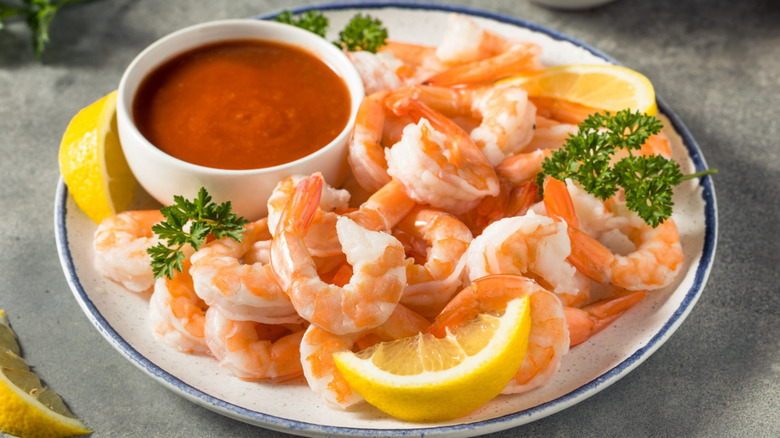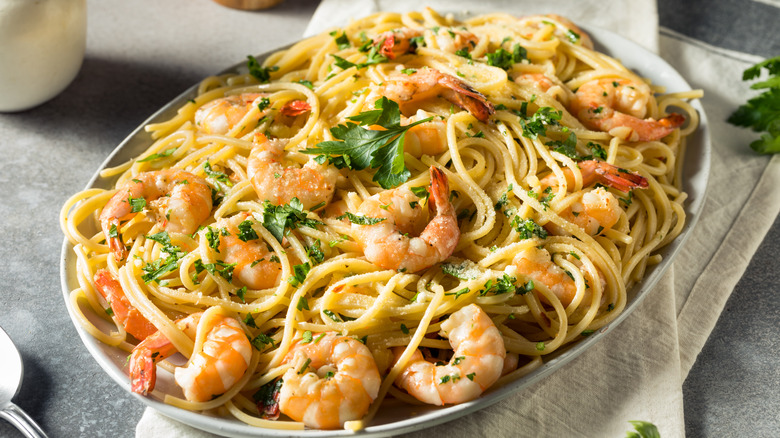The Biggest Difference Between Freshwater And Saltwater Shrimp
Shrimp has long been a popular seafood delicacy. We all remember gobbling down the little pink crescents dipped in cocktail sauce at New Year's Eve parties and weddings. But it might be surprising to learn that this ubiquitous diminutive crustacean comes in a variety of types and flavors. One of the key distinctions is whether they are freshwater or saltwater shrimp. The differences between these two categories — including size and taste — significantly impact culinary choices.
Freshwater shrimp are usually larger than saltwater shrimp and due to the fact that many freshwater species are inedible, they do not undergo the intense fishing that saltwater shrimp do. (They are, instead, popular aquarium inhabitants, because of their distinctive colors.) Freshwater Shrimp are generally known for their milder slightly sweet flavor, and for having more flesh and thin shells. These are ideal for dishes that give them center-of-the-plate status and for those that require subtle flavors, allowing other ingredients to shine. Saltwater Shrimp are known for their robust and distinct umami flavors that can vary among species, with some exhibiting sweeter undertones. This shrimp is often preferred for dishes that benefit from a pronounced seafood taste.
There are a surprising number of varieties of shrimp
The many varieties of shrimp can be unexpectedly confusing. You've got warm saltwater shrimp and cold saltwater shrimp, farmed (aquaculture) shrimp and wild-caught shrimp. In some countries, the terms "prawn" and "shrimp" are used interchangeably, while in other regions, there may be a distinction based on size or species characteristics. In the U.S., most shrimp that you can buy for culinary purposes will be small salt-water critters, and most prawns bought for the same purpose will be larger, meatier fresh-water dwellers.
Freshwater Shrimp, which can be as big as 12 inches in length, are often compared to lobster in size and taste and can be served as a sort of smaller version of lobster. At one time, freshwater shrimp, despite their impressive size, were frowned upon because their more-substantial flesh was so soft it didn't hold up to boiling. That is no longer the case and now they are sought after for their size and flavor. Small, umami-packed saltwater shrimp are more likely the ones you'll find in markets and grocery stores. They'll be a key ingredient in your stir-fries, stews, scampi, and tacos.

